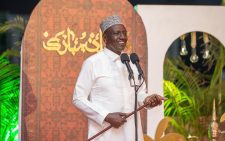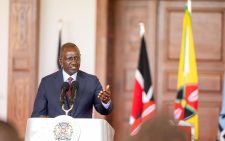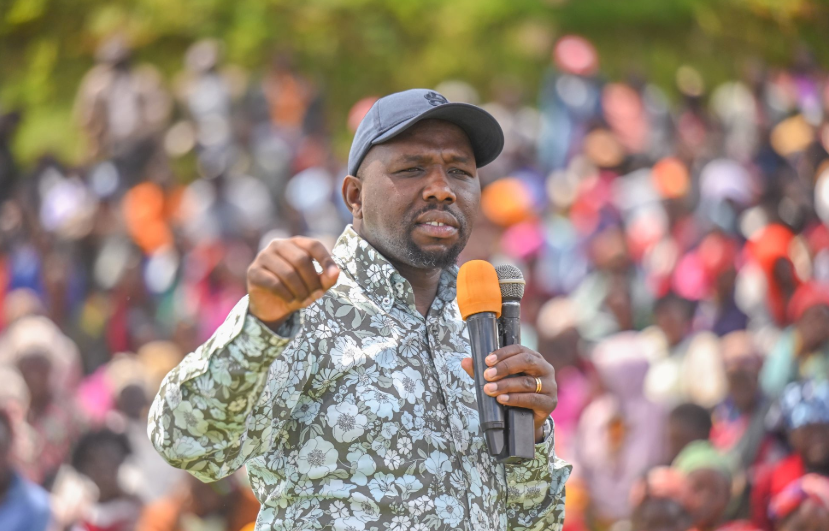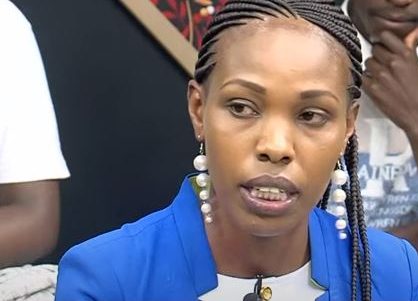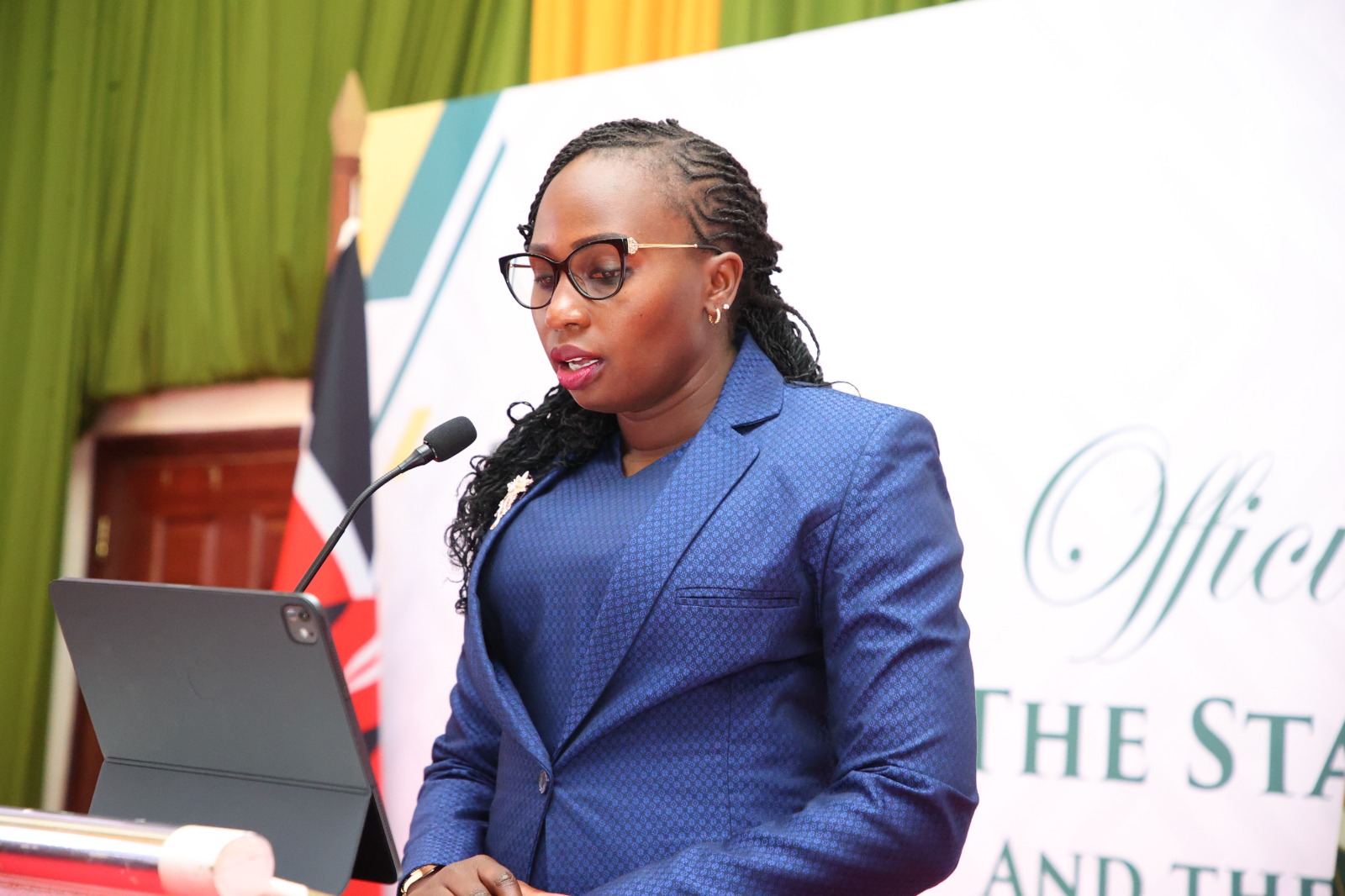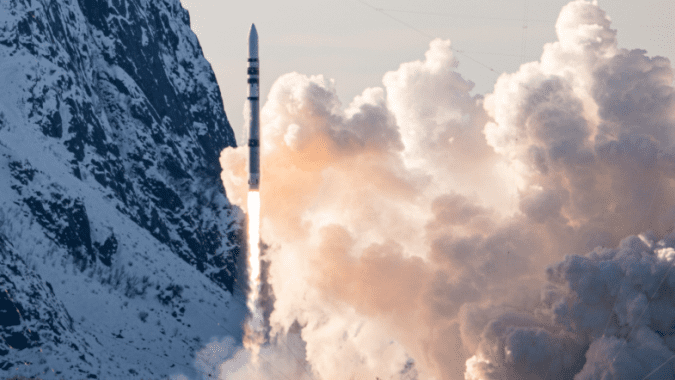Ruto sparks controversy again by recognizing Kosovo’s independence against Serbia’s wishes
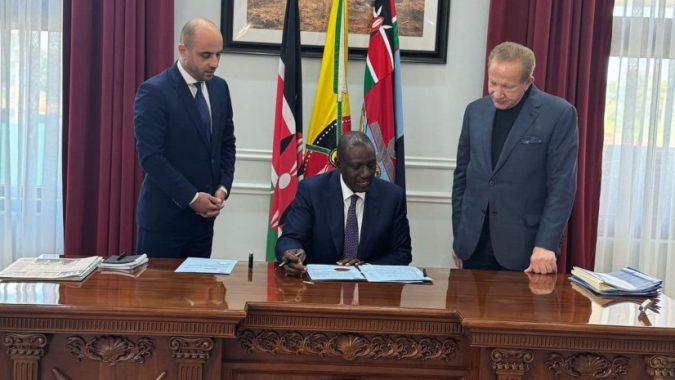
President William Ruto’s recent recognition of Kosovo as an independent state has ignited a diplomatic firestorm, particularly in light of existing tensions stemming from Kenya’s involvement in the Sudan conflict.
This move, a stark reversal of earlier assurances given to Serbia, has raised serious questions about Kenya’s foreign policy consistency and its role as a regional mediator.
The official recognition, which occurred during a closed-door meeting at State House, Nairobi, on Wednesday, March 26, 2025, marks a pivotal moment for Kosovo, which declared independence from Serbia in 2008.
Former Kosovo President Behgjet Pacolli, who played a crucial role in lobbying for this decision, shared images of President Ruto signing the recognition letter, hailing it as a remarkable ceremony and a great victory.
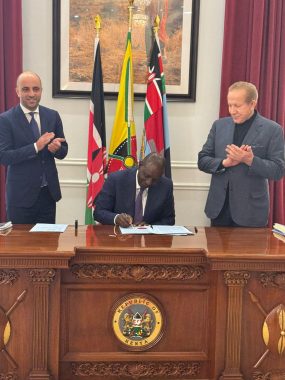
Notably, at the time of publishing this article, neither President Ruto nor State House had shared any photos or official details of Kenya’s recognition of Kosovo on social media, as is customary for such high-profile events.
Announcing Kenya’s recognition of Kosovo as an independent nation on his Facebook account, former President Pacolli wrote:
“NAIROBI 26 mars 2025
Today, Kosovo writes history!
“17 years after Independence, in a remarkable and unforgettable ceremony, the Republic of Kenya – one of the most important countries in Africa – officially recognized the Republic of Kosovo as an independent and sovereign state!
“This recognition is not just a declaration – it is a great victory for the state of Kosovo, it is the voice of our freedom that is heard deep in the heart of Africa! Today, our state flag flies high proudly in Nairobi, and this is a proof that Kosovo moves forward, strong and with dignity when it is worked and willed to!
“This victory did not come by chance. She is the fruit of long, hard work, dedication and sacrifice. Since 2009, I have personally lobbyed and talked to Kenyan authorities to make this day a reality. I have gone door to door, office to office, with only one goal – to make the voice and right of the people of Kosovo known for freedom, independence and sovereignty. President William Ruto, stood by his word in 2016.
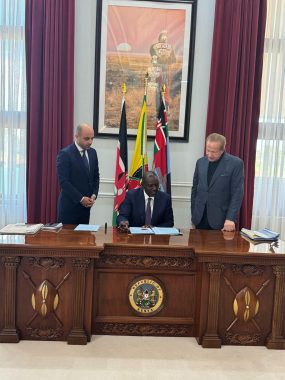
“He visited Kosovo in 2019 and felt the power and determination of our people. In 2023 during my visit to Nairobi, he took the first step by recognizing our passports. Today, in a grand ceremony, he said aloud: Kosovo is a state known by Kenya!
“This is diplomacy with result. This is the Kosovo they respect! This is the victory of our national dignity in the international arena!
I call on the Government of Kosovo to immediately establish diplomatic relations with Kenya and open a joint Embassy with the Republic of Albania in Nairobi.
“Kosovo must be present where it is respected and supported – in the heart of Africa! This embassy will be Kosovo’s gateway to enter powerfully into the African continent, to build new political, economic and cultural alliances.
“I want to express my thanks to my close colleague, Jetlir Zyberaj who has been permanently my eye and ear not only in this important process for Kosovo.
I would like to express a special thank you to Albania, President Begaj and Prime Minister Edi Rama, who have given me state support.
“This is the day Kosovo was seen, heard and accepted. This is the day when our people should feel the pride of a priceless victory – the international recognition of our State. Thank you Kenya! Thank you President Ruto! Glory to Kosovo and its proud citizens!“
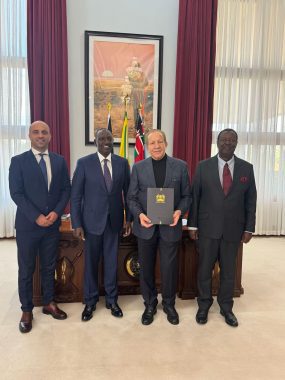
However, this diplomatic maneuver will certainly strain relations with Serbia, which views Kosovo as a breakaway province.
President Ruto had previously offered assurances to Serbian President Aleksandar Vučić, during a meeting in Beijing in October 2023 that Kenya would not recognize Kosovo’s independence.
This contradiction has led to accusations of diplomatic inconsistency and eroded trust between the two nations.
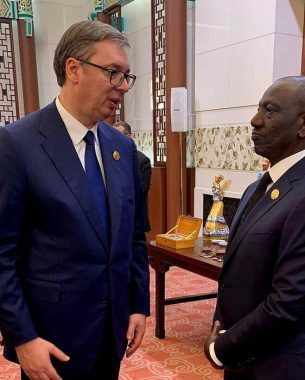
Adding fuel to the fire is the backdrop of Kenya’s contentious involvement in the Sudan conflict.
President Ruto’s administration has faced accusations of shifting allegiances, particularly concerning its engagement with General Mohamed Hamdan Dagalo’s paramilitary Rapid Support Forces (RSF), rather than exclusively supporting General Abdel Fattah al-Burhan’s Sudanese Armed Forces (SAF).
Ruto had earlier assured Sudan’s military junta leader, General Abdel Fattah al-Burhan, that Kenya would remain neutral in the Sudan conflict only to throw its weight behind RSF.
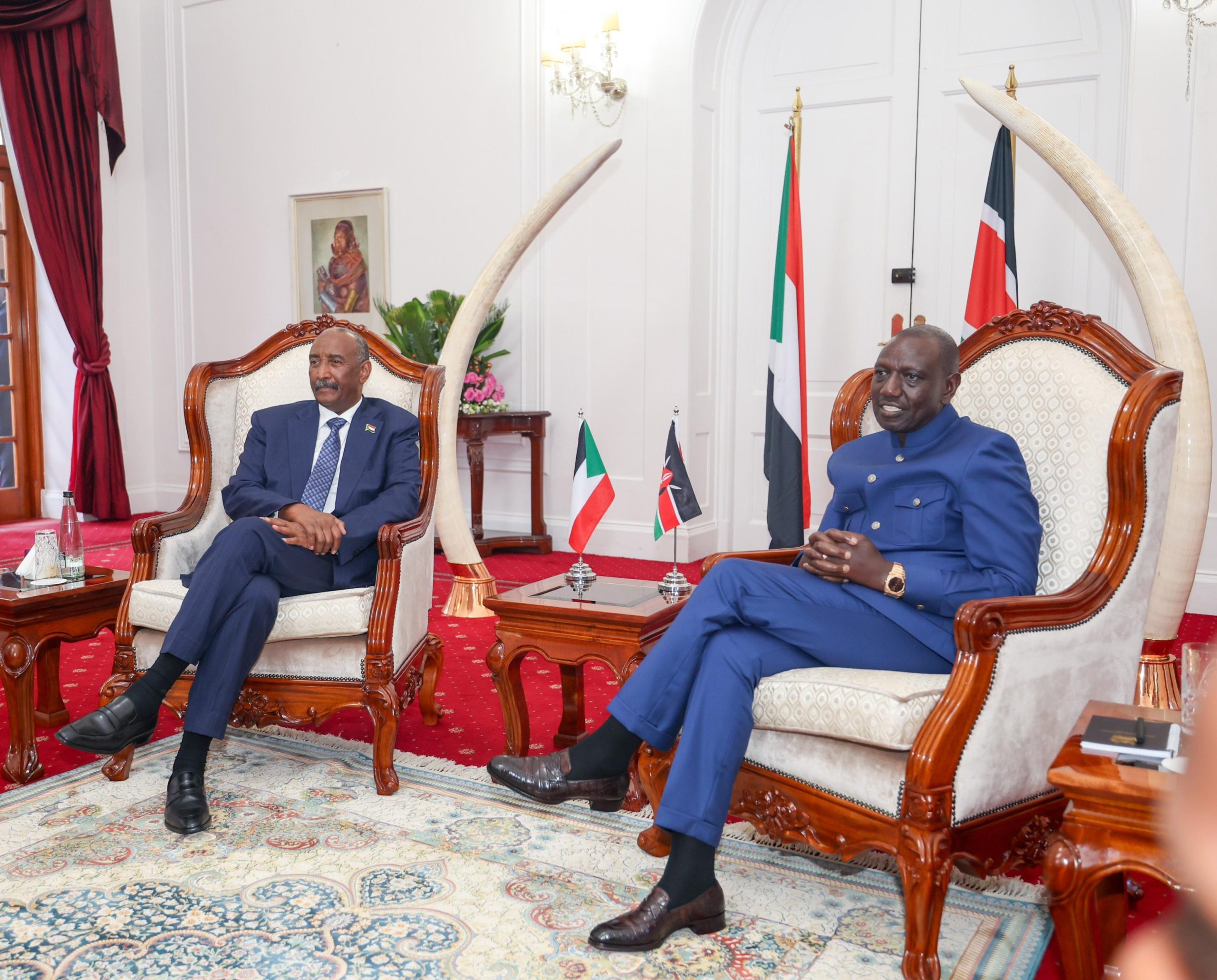
A diplomatic storm between Kenya and Sudan erupted after RSF, the group battling the Sudanese army for control of the country, staged their meeting in Nairobi.
Through a strongly worded release to the media on February 21, 2025, Sudan’s Ministry of Foreign Affairs indicated that the meeting hosted by splinter groups wanted to establish a parallel government.
Following the RSF meeting in Nairobi, Sudan accused Ruto of siding with RSF and its leader, Mohamed Hamdan Dagalo, famously known as Hemedti and recalled its ambassador to Kenya.
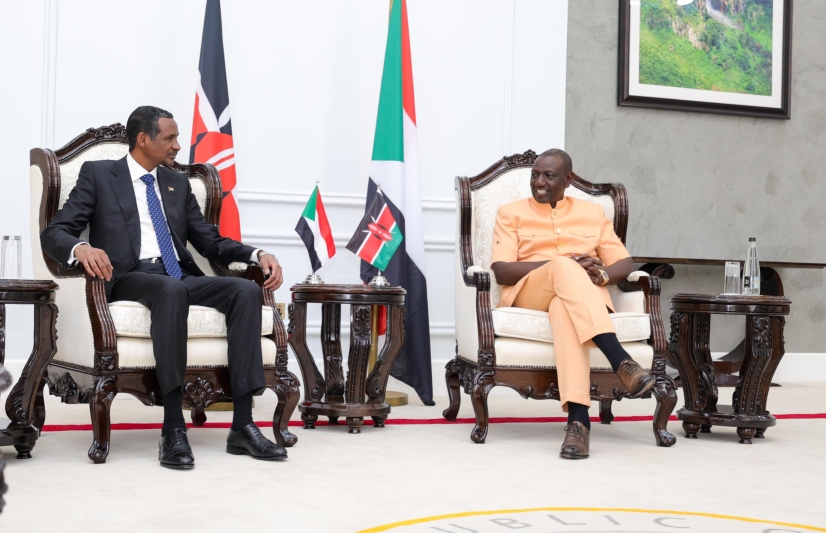
Sudan also banned all imports from Kenya for hosting paramilitary forces’ activities in Nairobi.
Kenya’s decision to recognize Kosovo, therefore, adds a new dimension to this long-standing geopolitical dispute.
The context of Kosovo’s history further complicates matters.
Kosovo’s declaration of independence in 2008 was met with mixed reactions from the international community.
While numerous Western nations recognize Kosovo’s sovereignty, Serbia, backed by its allies Russia and China, continues to reject its independence.
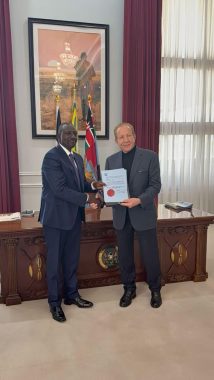
This divide has prevented Kosovo from securing full membership in the United Nations.
The motivations behind President Ruto’s policy reversal remain unclear, sparking speculation about Kenya’s evolving foreign policy objectives.
The fallout from the Sudan conflict and the subsequent recognition of Kosovo have placed Kenya’s diplomatic prowess under scrutiny.
Author
Martin Oduor
The alchemist of literary works - a master wordsmith with a proven record of transforming the raw materials of language into a rich tapestry of emotion, thought, and imagination.
View all posts by Martin Oduor
